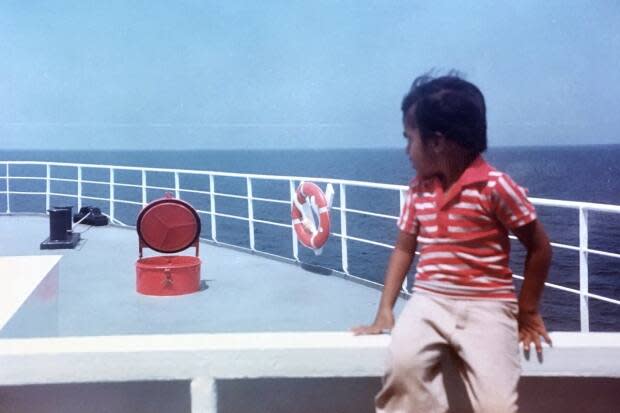How buying illegal milk on P.E.I. helped author discover cultural revelation
Pardis Parker hopes if there's one thing readers take away from his innocent tale about buying illegal milk on P.E.I., it's that no matter where we are from, many of our childhood experiences are similar.
Those experiences are often rooted in food, he said. And, of course, "being naughty."
Both play a central role in his Illegal Milk, published recently in the New York Review of Books. It's about how his grandfather found a way to source raw milk in P.E.I. to make hard yogurt, the way they made it in Iran.
Problem is, selling raw milk straight from the cow is illegal in Canada.
Parker found that out the hard way at a farmer's home in the mid-'80s when he was six years old.
'Agreement' with farmers
"They had some agreement with people like my grandfather, where if you wanted just the raw milk straight from the cow, then you could head to the farm, just go around back, you know, don't interact with anyone, let yourself in ... take as much as you want, leave the money in a jar," he recounted in an interview on Island Morning.

One time when he was young, Parker accompanied his father and grandfather to the farm when the farmer unexpectedly walked in on them.
"This was a major, major moment of tension in that episode because he was now a witness," Parker said.
"Now, if the dairy investigators came by and asked him if people were taking his raw milk, he couldn't plead ignorance anymore. And so it was at that point that I realized that what we're doing isn't above board."
Many of the stories we hear when it's related to race are rooted in trauma, and it's nice to hear stories that are celebratory. — Pardis Parker
Parker is a writer and comedian who is from Halifax but spent many summers at his grandparents' home on P.E.I.. His father's side is from Iran and his mother's side from Sri Lanka. He said writing the essay gave him happy insights into his father's childhood and culture.
"Many of the stories we hear when it's related to race are rooted in trauma, and it's nice to hear stories that are celebratory. And I think it's important for me to contribute to that, you know, when I can."
Many of the stories are similar to what you'd hear anywhere, he said.
"Ultimately the experiences you have as a kid are all fairly similar, you know, and they're fairly innocent and they're rooted in exploration and fun and learning and eating, you know — and being naughty, breaking the rules, like it's all universal. We're all the same," he said.
"So, hopefully, people can see that."
More from CBC P.E.I.

